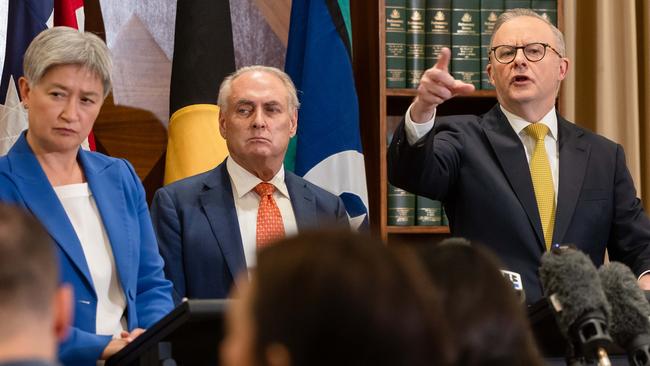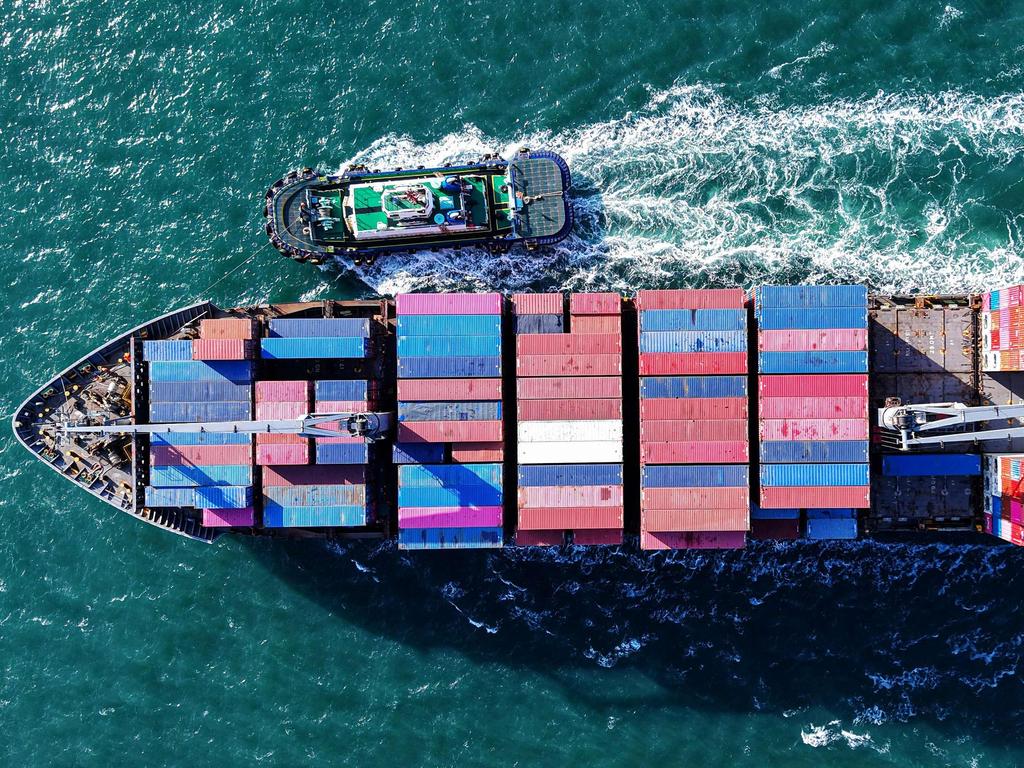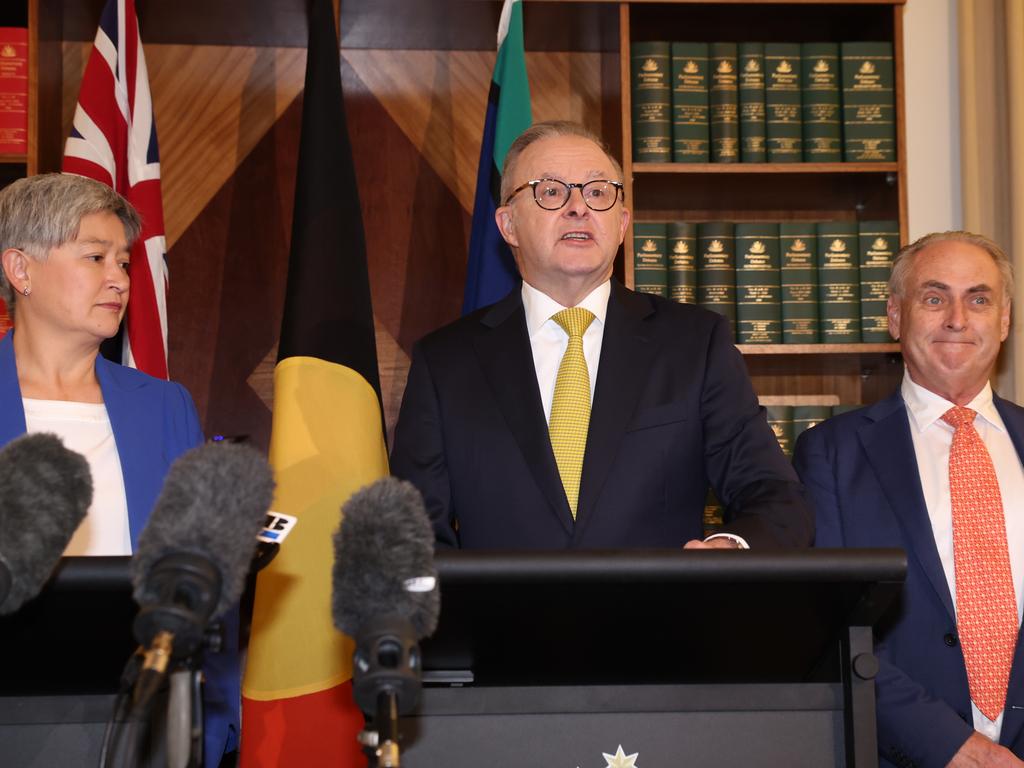
Anthony Albanese, son of St Mary’s Cathedral College and the University of Sydney’s radical political economy cell, has schooled the putative author of The Art of the Deal in classical economics.
A day after dabbling with dismal science fictions on productivity, wages and inflation, the Prime Minister has sensibly gone back to first principles and the neat graphs he once drew with coloured pens on supply and demand for first-year assignments.
He declared there was “no basis in logic” in an unfriendly move that will punish us but the American people more, after Donald Trump hit Australia with a 10 per cent tariff on Thursday morning (Australian time), a relatively light smack all things considered,
In this, the Prime Minister was echoing economic basics and enlightened Labor heroes, as well as the editors of The Wall Street Journal’s editorial page, who straight off the bat called out Trump’s move as “the dumbest trade war in history”.

As the son of a New York property mogul, Trump famously went to the Wharton business school at the University of Pennsylvania, founded in 1740.
Although The Donald graduated in 1968, his economic brain is clearly stuck in the 18th century, during the dying days of mercantilism, the discredited theory that a country got rich by one-sided trade, pumping up its exports and shutting out imports.
It was the dominant school of thought in the fledgling discipline before two momentous events in 1776: American Independence and the publication of Adam Smith’s game-changing An Inquiry into the Nature and Causes of The Wealth of Nations, which never goes out of style.
Only a couple of weeks ago, Bank of England governor Andrew Bailey drew on the classical economist’s master work to talk about the best ways to revive economic growth and hope in the UK and beyond.
“One of Smith’s important insights can be described by his observation that if a foreign country can supply us with a commodity more cheaply than we can make it, better buy it off them, with some part of the produce of our own industry employed in a way in which we have some advantage,” Bailey told a British university audience.
“That advantage which Smith pointed to would arise from one of his other insights, the benefits of specialisation and division of labour.
“In this way, Smith set out the view that greater openness through trade will increase competition, productivity and growth.”
Along with developments in technology, free trade has been the secret sauce to the prosperity of nations for two centuries.
Albanese said on Thursday he understood in year 7 that border taxes hurt the country that imposed them more than the country that copped them.
By my reckoning, that was in 1976, a few years after the local subsidiary of British Leyland stopped making the gas guzzling lemon P76.
Australia’s protected car factories had struggled for decades to deliver quality and reliability.
“Didn’t have to go to uni and get an economics degree to get that,” the Prime Minister said of the economic harm from tariffs.
“But there appears to be a debate about that.
“It produces higher costs for the country that’s imposing the tariffs, which is why we’re not responding by lifting up our tariffs and by therefore having an inflationary impact.
“So it’s important that Australians get that as well.”
Despite clear evidence of the economic damage, it took a long time for Australia to learn about the self-defeating nature of industry protection; about how it kept our precious capital and labour in dying industries, costing consumers more for cars, fridges, shoes and clothing; and how protected sectors are never able to get off the taxpayers’ drip until they fail.
The US President’s Liberation Day tariff onslaught offends traditional and modern economic thought, as well as America’s loyal and free-trading friends.
It’s a sad, stupid and hurtful move. Maybe that’s the point.






